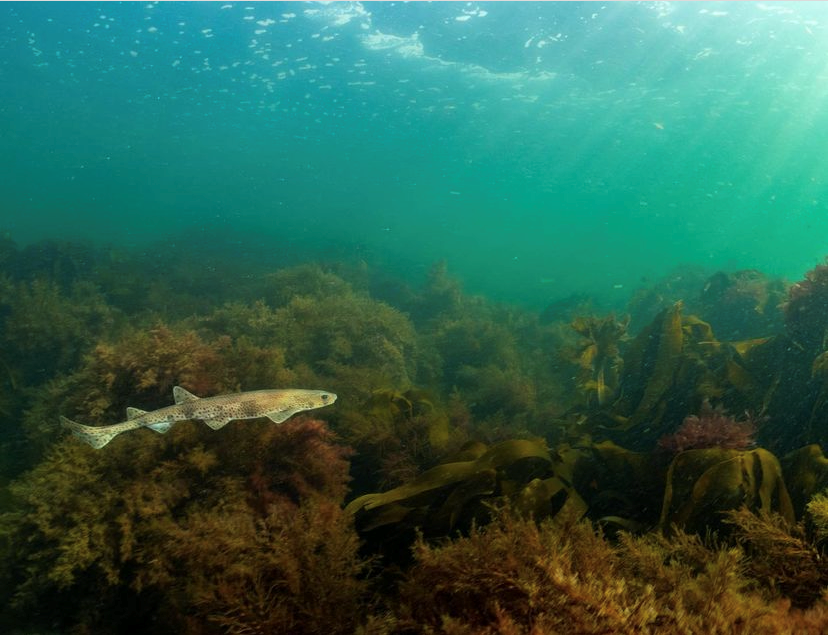
Ocean charities call out the Government on stalled “super year” for Ocean Recovery
In January last year, the Government declared 2021 would be a Marine Super Year, highlighting ‘unprecedented alignment of international and domestic marine agendas’. So we joined forces with 11 other marine conservation organisations to produce a Marine Scorecard setting out our assessment of 5 priority areas for the marine environment and actions the Government should deliver in 2021.
One year on, what progress has been made? Well our assessment makes pretty grim reading, with the Government making no demonstrable progress in 11 out of 17 important steps for action on ocean recovery. This follows huge criticism in 2020 when the Government failed to achieve its goal (set under EU law) of achieving Good Environmental Status for UK seas, failing to meet 11 out of 15 targets for healthy seas. All in all, this is a mark of a deep ecological crisis for the ocean.
What were the 5 priority areas?
- ocean recovery targets;
- policy to protect and enhance marine wildlife;
- offshore planning for renewables and nature;
- reducing bycatch of marine wildlife by fishing boats; and
- locking away “blue carbon” to reduce climate change.
And we have found that in every area, Government action had been insufficient to help halt the decline of nature.
Amy Slack, Head of Campaigns & Policy at Surfers Against Sewage said:
“The ocean is the beating heat of the planet and is vital in sustaining life on earth. Yet, due to destructive human activities, it’s on the brink of collapse. The Government promised greater protection and restoration of the ocean in 2021 but we saw little in the way of the urgent action needed. 2022 MUST be different if we are serious about tackling the ocean, biodiversity, and climate crisis”
There has been an increasing public and political awareness of the vital role that a healthy ocean plays in building healthy communities and in fighting the challenges of climate change and biodiversity loss. However, these opportunities are being missed, with policy on sustainable fishing standing out as particularly poor.
The Government has not committed to ensure that fishing catch limits are set within scientifically recommended sustainable levels. It has also taken no action to roll-out Remote Electronic Monitoring (REM) to ensure that boats stick to rules like quota allocations. This is critical to reduce the thousands of avoidable fishing-related deaths of dolphins, whales, porpoises, sea-birds and other marine-life. A promise in February from the Secretary of State that bottom trawling would be prohibited in the Dogger Bank special conservation area, alongside three other English MPAs, has also not been put into action.
Sean Clement of WWF-UK, Chair of the Wildlife and Countryside Link Marine Group, which coordinated the assessment, said:
“While there have been highlights in 2021 such as the commitment to tackle bottom trawling and deliver new Highly Protected Marine Areas, overall we’re disappointed in this stalled super year. The urgency of the climate and nature emergencies means policies to protect and restore our amazing marine life cannot be kicked into the long seagrass, 2022 must be the moment that words turn into action”
The only glimmer of hope we have seen from the Government in 2021 is the flagship Highly Protected Marine Areas (HPMA) programme, which has the potential to restrict fishing and other damaging activities from selected marine sites in English waters, with new HPMA’s to be piloted. HPMA’s can play a critical role in protecting biodiversity and reducing climate change by protecting “blue carbon” habitats, such as the seabed and seagrasses, which capture and lock away greenhouse gases.
We also saw the Government elevate the role of the ocean in the climate negotiations at COP26 and the Environment Agency has mapped the areas of our coast and seabed that can best support our net-zero goals.
But overall, action is far, far too slow. We need less talk and more action.
So what’s next?
We are calling for three key actions from Government to make 2022 a new super-year for ocean action:
Measures to ensure our Marine Protected Areas (MPAs) are genuinely protected, including:
- The effective prohibition of all harmful activities such as bottom-trawling in MPAs
- Effective identification and safeguarding of priority Blue Carbon resources
Implementation of robust monitoring and enforcement across the UK fishing fleet, and particularly the use of Remote Electronic Monitoring (REM) cameras and associated mitigation measures, are vital to dramatically reduce the unacceptably high number of fishing-related deaths for dolphins, porpoises, sharks, seabirds and other marine-life. It would be welcome if REM was incentivised in the Government’s new £65m fishing infrastructure scheme.
The refocusing of the UK Marine strategy to provide a clear route-map to achieving 2030 targets, to protect 30% of UK waters for nature and to halt nature’s decline in UK seas
In this crucial decade for the environment, we need to see real action to protect the ocean delivered swiftly and effectively.
People power is behind ocean recovery and we will be holding government to account, every step of the way, to make sure they turn the tide on the exploitation of our precious blue spaces.
